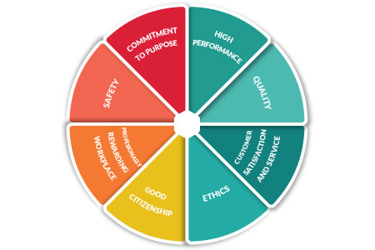Outsourcing History And Its Core Values

By Louis Garguilo, Chief Editor, Outsourced Pharma

When Thomas D’Ambra co-founded Albany Molecular Research, Inc. (AMRI) in 1991, with the idea pharma would outsource its discovery and development programs to his organization, most in the industry thought it was a serious miscalculation.
Pharma doesn’t send its IP outside the fortress walls of its own labs and facilities, cried the disbelieving chorus.
He proved them wrong. Very wrong.
In so doing, he helped establish the thriving outsourcing industry we take for granted today.

I worked with D’Ambra for just shy of a decade (2006 to 2016), but hadn’t seen him since, until we recently met to catch up.
He’d been taking a few years off from the industry, but now says, “I’m back. Sort of.”
What he’s back at puts him on the side of the drug sponsor … and needing the service of CDMOs.
So far, he’s had mixed results.
Which got him to thinking through the history of our industry, and what it has become.
He spoke to me about his decades of experience – the early years; sudden rise of CDMOs in India and China; recession of 2008-09; increase in M&A and other recent developments.
All that, and what continues to transpire, has reinforced his belief in a set of core values the company developed and enshrined at our company some 20 years ago.
“Those core values,” he says to me quietly during our reunion, “are not just for CDMOs. They are for any company.”
“Do you remember them?”
It Began With Japan
I first met D’Ambra in 2006, in a diner not far from the new headquarters campus he’d established on the outskirts of Albany, NY. He’d heard I was well versed in Japan.
I asked him why he was so interested in doing business there. There were opportunities, but it was an extremely difficult market to break into – and Japanese Pharma were not yet outsourcing outside the archipelago.
“If we can learn to serve the Japanese customer,” D’Ambra replied, “we can serve any customer.”
“Our company has to be about the highest customer service to succeed.”
In fact, he’d always been about customer service.
At company inception in 1991, he recalls, no companies were doing most of the things service providers do today. Biotech was still in its early years, and Big Pharma might outsource clinical trials and bulk manufacturing, but mostly the activities preceding commercialization were closely held in house.
Nonetheless, says D’Ambra, “When I began my career as a chemist [at Sterling Drug], it was clear to me drug sponsors would always run out of resources for some of the things they needed done. Our company was founded to fill an unmet need in the industry.”
“In the early years, it was difficult to convince potential customers to give you a shot, but little by little they did, and if you did a good job, it led to more opportunities.”
D’Ambra was looking to establish “a culture of high performance, high expectations, and high quality” to continue receiving those opportunities.
“I remember long ago arriving at a hotel in Osaka, Japan,” he says. “Everything was sparkling and polished. The doorman ran to the cab to open your door, the staff in the lobby ran to greet and help you. The facilities and customer service were spectacular. It had a five-star atmosphere. That was what we wanted to be in our industry. And it didn’t have to be expensive.”
But it does need core values.
The Wheel Of Core Values
Today, D’Ambra is CEO at Pharmapotheca A, Inc., a pharmaceutical development company working to manufacture amphetamine products primarily for the Attention Deficit Hyperactivity Disorder (ADHD) market, and, he says, “free from the presence of a trace, potentially genotoxic impurity created in current manufacturing processes that start with norephedrine.”
Pharmapotheca was formed by one of D’Ambra’s former lieutenants, Harold Meckler, who licensed novel amphetamine technology when he left AMRI in 2013.
He and Meckler now need CDMOs, and D’Ambra for one thinks they – and other companies today – could benefit from the core values he shaped at AMRI years ago.
So I find myself going through those values once again, sitting just a few feet from the booth at the diner where I first met D’Ambra some 20 years ago.
Before we start, though, he reminds me that he had insisted what became our eight core values be presented in a circle: none was more important than another; all were needed for optimal internal professionalism and customer service.
I ask him to begin with the following value. I wanted to revisit the concept of “purpose” itself.
1. Commitment To Purpose – Dedication to responsibilities, exemplified by a strong work ethic, a “can do” attitude, and a willingness to be accountable and take ownership.
“Let me play devil’s advocate,” I say. “I think you must define ‘purpose’ here. Do employees understand what purpose we are talking about? Aren’t there many purposes – including some that are private, like moving up in the organization?”
“If you look at the language behind this core value, it is a dedication to your responsibilities related to your job,” he replies. “You bring tools to your position, if you will, and one of those is a strong work ethic, and a can-do attitude … We even had T-shirts made that said, ‘Chemistry With An Attitude.’
“This is about your overall dedication, your own personal accountability. It is taking complete ownership of your job.
“And it’s not only if you work directly with customers. If you are a facilities custodian, a janitor, whatever you do – it’s like Abe Lincoln said:
‘Whatever you are, be a good one.’”
----------------
We’ll get to the remaining core values next, starting with “High Performance.”
